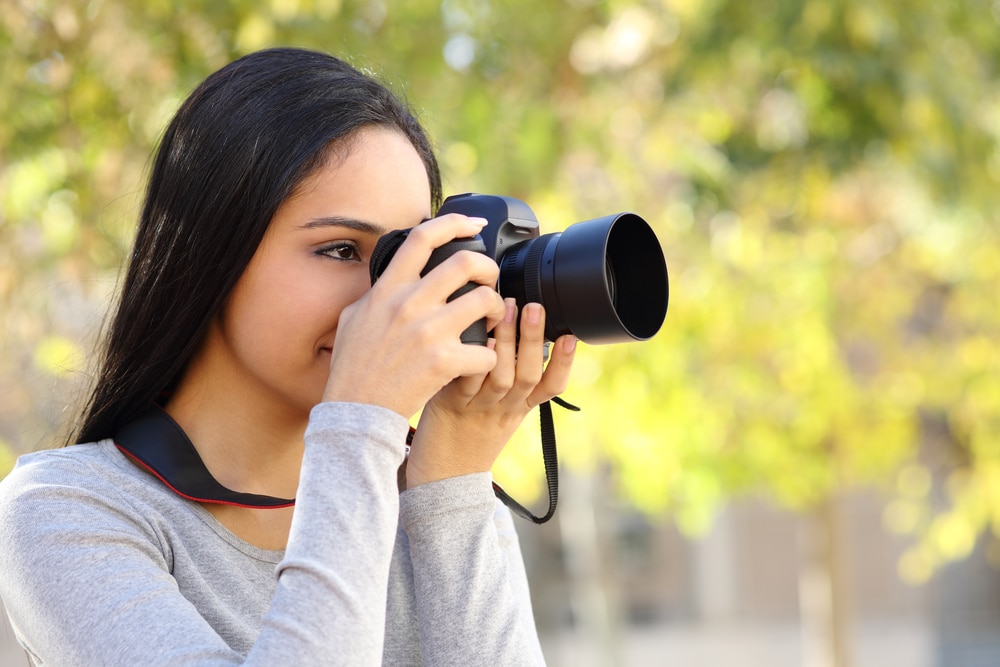Discover the Best Colleges for Photography
Finding the right college for your desired field of study can be a daunting task. For photography enthusiasts, the challenge is no different, but we are here to help. As you embark on this important journey, this article aim to guide you towards making an informed decision in choosing the Best Colleges for Photography.
Photography is an art that requires more than just a good eye and skill. The right educational background can arm you with various techniques, an understanding of various forms of photography, the ability to critique your own work, and much more.
Understanding the Importance of Choosing the Right College
Where you choose to pursue your education is arguably as crucial as what you choose to study. The right photography college can provide exposure to industry experts, practical gallery experiences, and provide networking opportunities that can be pivotal for your career.

When embarking on your photographic journey, it is essential to recognize the significance of selecting the perfect institution. The decision requires careful consideration and can shape the trajectory of your future in the field of photography.
Choosing a college is not a decision to be taken lightly. It is a commitment to your education and a stepping stone towards your professional aspirations. As you embark on this journey, there are several factors to consider when selecting a photography college.
Factors to Consider When Choosing a Photography College
College selection should be based on multiple factors that align with your goals and expectations. The breadth and flexibility of the curriculum, the expertise of faculty, opportunities for exposure, and the availability of resources should be primary considerations.
When evaluating potential colleges, it is crucial to assess the curriculum’s depth and breadth. A comprehensive program that covers various aspects of photography, such as technical skills, artistic vision, and business acumen, can provide a well-rounded education.
Additionally, the expertise of the faculty plays a vital role in your learning experience. Experienced professors who have a deep understanding of the industry can offer valuable insights and guidance, nurturing your growth as a photographer.
Opportunities for exposure are also essential in a photography college. Look for institutions that offer practical gallery experiences, where you can showcase your work and receive feedback from professionals and peers. These experiences can help you refine your craft and build a portfolio that stands out.
Furthermore, consider the availability of resources at the college. Access to state-of-the-art equipment, studios, and editing facilities can enhance your learning experience and enable you to explore different techniques and styles.
While evaluating colleges, it is also crucial to look into their connections and networking opportunities with industry personalities. A college that has established relationships with professionals in the field can provide valuable networking opportunities, internships, and even job placements.
Real-world experience is invaluable in the photography industry. Look for colleges that offer internships or cooperative education programs, allowing you to gain hands-on experience and apply your skills in a professional setting.
The Role of a Good College in Shaping Your Photography Career
A good college not only imparts knowledge but also plays a significant role in shaping your perspective and approach towards photography. Through structured learning and industry exposure, you can gain invaluable life skills and develop your unique style under the mentorship of experienced faculty.
By immersing yourself in a supportive and creative environment, you can explore different genres of photography, experiment with various techniques, and discover your artistic voice. The guidance and feedback from experienced professionals can help you refine your skills and develop a strong portfolio.
Furthermore, the reputation of your college can heavily influence your job prospects and industry recognition. Employers often value graduates from reputable institutions, as they are seen as having received a high-quality education and training. A well-regarded college can open doors to internships, job opportunities, and collaborations with established professionals in the field.
Ultimately, choosing the right photography college is a decision that should not be taken lightly. It is an investment in your future and a crucial step towards achieving your career goals. By carefully considering the factors discussed above, you can make an informed decision that sets you on the path to success in the dynamic and competitive world of photography.
Overview of Top Photography Colleges

Photography is a captivating art form that allows individuals to capture and express moments in time. For those aspiring to pursue a career in photography, there are several renowned colleges across the globe that offer extensive photography degree programs. These institutions stand out for their exceptional curriculum, skilled faculty, and remarkable alumni achievements.
Our aim is to give you an idea of what to expect and where to apply, so let’s take a closer look at some of the top photography colleges in the United States and internationally.
Renowned Photography Colleges in the United States
The United States is home to some of the most prestigious photography colleges that attract students from all over the world. These colleges provide a nurturing environment for budding photographers to develop their skills and explore their artistic vision.
- The Rhode Island School of Design (RISD) is renowned globally for its forward-thinking approach and modern pedagogy. Its Photography program is a blend of traditional and digital practices, encouraging students to experiment and innovate their craft. RISD’s faculty consists of accomplished photographers who bring a wealth of knowledge and industry experience to the classroom. Graduates from RISD have gone on to make significant contributions to the field of photography, establishing themselves as influential artists and professionals.
- Yale University’s School of Art offers an exceptional Master of Fine Arts program in photography. The close-knit nature of the program allows for personal attention and constructive critique. Students have access to state-of-the-art facilities and resources, enabling them to explore various techniques and approaches. The faculty at Yale consists of renowned photographers who are dedicated to nurturing the next generation of visual storytellers. Graduates from Yale’s photography program have achieved great success, with their work being exhibited in prestigious galleries and featured in prominent publications.
- New York’s School of Visual Arts (SVA) is another stand-out choice that offers comprehensive undergraduate and graduate programs with a strong focus on the conceptual aspect of photography. SVA’s faculty comprises established photographers and industry professionals who provide valuable insights and mentorship to students. The college also organizes regular exhibitions and guest lectures, allowing students to engage with the broader photography community. SVA alumni have made significant contributions to the field, with their work being recognized and celebrated both nationally and internationally.
Top International Colleges for Photography
If you’re looking to broaden your horizons and experience photography education in a different cultural context, there are several top-notch international colleges that offer exceptional photography programs.

- The Royal College of Art in London is renowned for its innovative Photography program that pushes boundaries and encourages its students to experiment. The college provides access to cutting-edge facilities and resources, allowing students to explore various mediums and techniques. The faculty at the Royal College of Art consists of renowned photographers and artists who provide valuable guidance and mentorship. Graduates from the program have gone on to establish themselves as influential figures in the photography world, with their work being exhibited in prestigious galleries and museums.
- The Berlin University of the Arts’ Berlin Weißensee School of Art is well-known for its outstanding curriculum that marries theoretical and practical learning. The program emphasizes critical thinking and encourages students to explore photography as a means of social and cultural commentary. The faculty comprises respected photographers and scholars who challenge and inspire students to push the boundaries of their creativity. Graduates from the Berlin Weißensee School of Art have made significant contributions to the field, using their photography as a powerful tool for storytelling and social change.
- The Paris College of Art is known for its focus on digital and analog photography, offering diverse and comprehensive programs that explore different themes and techniques. The college’s faculty consists of accomplished photographers and artists who bring a wealth of knowledge and industry experience to the classroom. The Paris College of Art provides students with access to state-of-the-art facilities and resources, enabling them to experiment and develop their unique artistic voice. Graduates from the program have gone on to achieve success in various photography-related fields, including fine art, fashion, and documentary photography.
Choosing the right photography college is a crucial step towards building a successful career in this dynamic field. Whether you decide to pursue your education in the United States or internationally, these top photography colleges offer exceptional programs that will equip you with the skills, knowledge, and artistic vision needed to thrive in the world of photography.
Delving into the Photography Programs
All photography programs are not created equal. It is crucial to understand their unique features and decide on the one that aligns with your goals and aspirations.
When it comes to photography programs, there is a vast array of options available, each offering a distinct approach to the art form. These programs can significantly influence your journey as a photographer, shaping your skills, knowledge, and artistic vision.
One key feature of a quality photography program is the balance between theory and practice. It is essential to have a solid understanding of the fundamentals of photography, including concepts such as exposure, composition, and lighting. However, it is equally important to have ample opportunities to apply these theoretical concepts in real-world scenarios. A program that emphasizes hands-on experience and practical assignments can help students develop their skills and gain confidence in their abilities.
Another crucial aspect of a photography program is the exposure to various photography genres. Different genres, such as photojournalism, fashion photography, wildlife photography, or fine arts photography, offer unique challenges and opportunities for creative expression. A program that introduces students to a wide range of genres allows them to explore their interests and discover their true passion within the field of photography.

Working with industry professionals is also a valuable aspect of a quality photography program. Collaborating with experienced photographers who have established themselves in the industry can provide valuable insights, mentorship, and networking opportunities. Learning from professionals who have successfully navigated the photography world can be instrumental in shaping a student’s career trajectory.
A rigorous critique process is another hallmark of a quality photography program. Constructive criticism and feedback from instructors and peers can help students refine their artistic vision, develop a critical eye, and push their creative boundaries. Engaging in thoughtful discussions and receiving feedback on their work can be a catalyst for growth and improvement.
In today’s digital age, proficiency in image editing software and post-processing methodologies is essential for photographers. A comprehensive photography program should include training in these areas, equipping students with the technical skills necessary to enhance and manipulate their images effectively. Understanding the intricacies of image editing can elevate a photographer’s work and allow them to express their artistic vision more precisely.
Lastly, a quality photography program should also address the business aspects of the photography world. Understanding the industry, marketing strategies, and client management is crucial for photographers who wish to establish a successful career. A program that provides insights into the business side of photography can help students navigate the professional landscape and make informed decisions about their career paths.
Specializations in Photography: Choosing What Suits You
Most colleges and institutions offering photography programs allow students to specialize in a specific genre or area of photography. This specialization allows students to delve deeper into their chosen field, honing their skills and developing a unique artistic voice.
Choosing a specialization is a personal decision that should be based not only on your passion and skill but also on the career opportunities that each specialization might present. For example, if you have a keen interest in capturing the raw essence of life and telling stories through images, photojournalism might be the perfect fit for you. On the other hand, if you have an eye for fashion and love creating visually stunning images, a specialization in fashion photography might be more suitable.
Wildlife photography offers the opportunity to capture the beauty and diversity of the natural world, while fine arts photography allows for creative experimentation and self-expression. Each specialization has its own unique challenges and rewards, and it is essential to choose one that resonates with your artistic vision and long-term goals.
Ultimately, the choice of a photography program and specialization should be a thoughtful and well-informed decision. Consider your interests, aspirations, and the opportunities that each program offers. By choosing a program that aligns with your goals and provides a comprehensive and enriching learning experience, you can set yourself on a path towards a fulfilling and successful career in photography.
The Admission Process for Photography Colleges
Securing admission into a top photography college can be competitive. Apart from your academic record, colleges look at various other aspects that showcase your aptitude for the program.
Let’s delve into understanding what you can do to improve your chances of admission.
Preparing a Strong Application for Photography College
Your application should be a holistic representation of your interests, skills, and potential. Good grades alone are not sufficient. Your portfolio – a compilation of your best work – is an essential element that can make or break your application.

College essays, letters of recommendation and, in some cases, an aptitude test, form other critical components of your application.
Essential Skills and Portfolio Requirements for Admission
Having a clear understanding of basic camera functionality, understanding of various genres of photography, and skills in image editing software can be a definite advantage on your application.
In terms of portfolio, different colleges have different requirements. It’s advised to follow the specific guidelines provided by each institution for portfolio submission. Generally, the portfolio should showcase your versatility and command on various photographic techniques.
Financing Your Photography Education
Earning a degree in photography can be quite an investment. But it should not deter you from pursuing your passion. Effective planning, budgeting, and resources can help mitigate the financial concerns.
Let’s discuss the various options available for financing your education.
Understanding Tuition and Other Costs
Tuition is the largest chunk of your college expenses, but it’s not the only cost. Living expenses, material costs, transport, and personal expenses must be factored into your budget.
Costs vary significantly between countries and institutions, so an in-depth understanding of these can help you plan better.
Scholarships and Grants for Photography Students
Several colleges offer scholarships and grants to deserving students based on both need and merit. Many external organizations also offer financial aid to support students in their educational journey.
Scholarships can substantially ease your financial burden, but securing one can be competitive. It is advisable to start your search and applications for scholarships well ahead of time.
In conclusion, choosing the right photography college is a significant first step in your photographic journey. We hope this guide will help you navigate your way to the best decision according to your aspirations and goals.





































